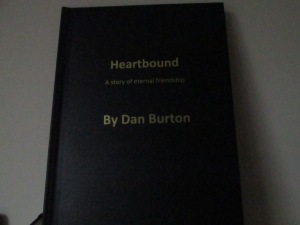![By NotFromUtrecht (Own work) [CC-BY-SA-3.0 (http://creativecommons.org/licenses/by-sa/3.0) or GFDL (http://www.gnu.org/copyleft/fdl.html)], via Wikimedia Commons](https://danielburton7.wordpress.com/wp-content/uploads/2014/09/new_walk_museum_leicester.jpg?w=391&h=309)
By NotFromUtrecht (Own work) [CC-BY-SA-3.0 (http://creativecommons.org/licenses/by-sa/3.0) or GFDL (http://www.gnu.org/copyleft/fdl.html)%5D, via Wikimedia Commons
For the final part of my 305MC summer task, I visited New Walk Museum in Leicester and in particular, visited the Ancient Egypt exhibit to discover what stories from the past were being told. Overall, the exhibit is very engaging and, as I outline below, effectively conveys fact about a very important period in history.
A lot of the collection focuses on general stories about the Ancient Egyptians and their way of life. For instance, visitors have the chance to see what tools were used in Ancient Egypt and how they adapted to their living conditions. An important part of the exhibit is a mock-up of a typical Egyptian kitchen and the cutlery they had available to them. The exhibit itself is open planned, with informative descriptions about smaller collections from Ancient Egypt and allows the visitor to discover a wide range of information. The exhibit also has a collection of mummies and these are the main attraction of the exhibit in my opinion.
The stories that are being conveyed are relatively easy to read. As well as having text to inform the visitors about Egypt, the exhibit also makes use of the phrase ‘if you were an Egyptian’ to encourage visitors to imagine themselves in Ancient Egypt. This method also coincides with facts about the Egyptian people’s religion and way of life. The mummification process, which is a major part of Egyptian culture, is also described in this way as well as important facts about religion and the famous Egyptian gods. Visitors are also encouraged to interact with parts of the exhibit, including the kitchen mentioned earlier. There are question wheels which reveal basic facts about Ancient Egypt and there is also a chance for visitors to practise writing hieroglyphics. However, they are still expected to behave respectfully towards the exhibit, especially as some parts are considerably fragile.
One reason New Walk Museum chose to host this particular exhibit is because it has a connection to Ancient Egypt. In the 1880s, Sir William Flinders became the first person to scientifically excavate in Egypt. In order for Flinders to do this, he obtained funding from New Walk Museum and now has part of the exhibit dedicated to his methods and how he studied Ancient Egypt. Some of his tools are on show as well as some of his notes.
On the whole, New Walk Museum’s Ancient Egypt exhibition portrays the Ancient Egyptians as very resourceful and religious individuals. It also reminds the visitor of how much respect the Ancient Egyptians deserve and how they managed to survive without the modern conveniences we possess today. The experience was very enjoyable and informative and explains all the information in an engaging way, with particular emphasis on encouraging the visitor to put themselves in the mindset of an Ancient Egyptian.

![By Roger469 (Own work) [CC-BY-SA-3.0 (http://creativecommons.org/licenses/by-sa/3.0)], via Wikimedia Commons](https://danielburton7.wordpress.com/wp-content/uploads/2014/04/adobe_audition_waveform_of_sound_impulses_on_the_police_dictabelt_analyzed.jpg?w=484&h=225)
![By Daniel R. Blume from Orange County, California, USA (A stack of newspapers) [CC-BY-SA-2.0 (http://creativecommons.org/licenses/by-sa/2.0)], via Wikimedia Commons](https://danielburton7.wordpress.com/wp-content/uploads/2014/04/a_stack_of_newspapers.jpg?w=300&h=225)